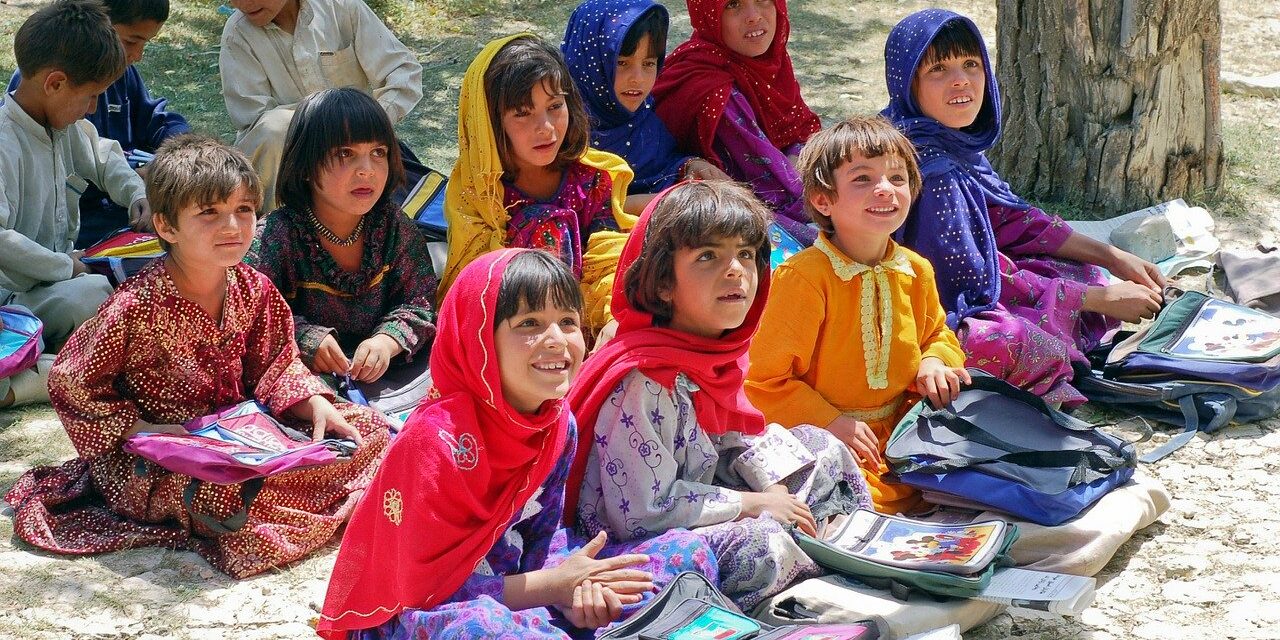To regulate human’s way of life is not an easy task to do. When we look throughout history, we find that every civilization spared their utmost efforts to establish constitutions or sets of laws to serve people’s immediate and future demands in their political, social, civil, economical and judicial relations and conducts.
It is observable that this is a toiling mission conducted by congregations and committees, whereas each committee may consist of the elites, who are dedicated in their fields. Hence, it is highly improbable that such a mission can be accomplished by a single man. In fact these committees may hold consecutive sessions and subsequent assemblies in an attempt to produce an applicable, coherent and practical constitution.
Despite all these congregational accumulative efforts, we still see that there will always remain room for further amendments. In many cases these constitutions may last for few years or decades and later –due to their incompatibility with the new era demands- they are replaced by newer sets of laws.
So, is it possible that such a complicated process of establishing a nation’s constitution be accomplished by a single man?
What would be your reaction if such a matter was proven to be done by a single man? Not just an ordinary single man, but rather a person who is unlearned!
And what if he were the only man –in the history of man- to accomplish that?
In reality, when we see people glorifying figures with immensely fewer achievements; shouldn’t that make this man a phenomenal figure of high eminence, who deserves higher admiration and reverence?
And what’s even more intriguing is to see the legislation, which he has brought forward, has lasted for more than 1400 years and is still compatible, coherent, respectable and protected against tampering with.
Not only that but –amazingly- he was able to set foundations and principles to accommodate the future’s demanding laws to serve and bring justice, order and harmony to the future’s revolutionary progress in human’s life style. This legislation always gives precedence to the utility of the general community, which is based on the core Islamic founded principles, over the individual’s self-centric desire or lust; while still maintaining the rights of the individuals in a fair and justified manner.
Most importantly, this legislation not only organized man’s worldly materialistic relations and conducts, but also answered man’s most perplexed anthological inquiries and –additionally- fulfilled his spiritual and psychological demands.
It is apparent that the contemporary and most sophisticated man made secular laws and atheistic precepts had ignored man’s most perplexing inquiry: why are we here? And what is the purpose of our existence? And never gave much attention to man’s spiritual demands nor honored his intrinsic ethical values.
Thus, to have a set of legislations, which fulfill the spiritual, ethical, moral and materialistic expectations and necessities of mankind in a fair and consistent manner this can neither be achieved by a single man nor a congregation of men.
An unlearned man in the primitive Arabian Peninsula -almost 1400 years ago- was able on his own to establish a comprehensive constitution; over a period of 23 years, which lasted until today and continue to last. This man can never be a mere regular person. The only mean for that man to achieve all that is through divine revelation and nothing else.
How can we come to such a conclusion?
Practically, no man was able to achieve that throughout history except for a Prophet. Additionally, the comprehensiveness of this legislation is a vivid manifestation of its divinity and that Muhammad (PBUH) alone can never produce such an inclusive legislation unless he was supported by divine revelation. Thus, Muhammad (PBUH) must be a true Prophet, who was appointed by God to convey His most fit laws to mankind.
Here are some of the legislations and few excerpts chosen from so many verses and statement of the Prophet (PBUH), which were conveyed by him to support the article’s contention:
1. The first and most important right is the right of the Creator – God:
- The only historical and contemporary religion, which is so conspicuous on the concept of the Oneness of God, is Islām. All through the Qur’ān, God had established a firm set of tenets confirming His oneness; asserted that mankind should exert the due respect to these tenets; and warned immensely against violating them. We see that major other faiths such as Catholicism and Judaism have patently violated this concept by ascribing partners to God in Lordship and worship, let alone the other faiths. Islām is deemed to be the only practiced monotheistic religion today.
- Amongst the most centric rights of God is to single him out in Worship; worship in Islām has a broad precept, which comprehensively includes all that is pleasing and acceptable to God; whether it was an action or statement. Unlike other religions, Islām disproves monasticism and celibacy and reconciles between man’s materialistic and spiritual demands.
God’s deserving acts of worship are so diverse; such as maintaining body cleanness and ablution for prayer, performing daily prayers, giving charity, fasting, and performing pilgrimage to Makkah; or loving, fearing, hoping trusting or repenting to God; or Reciting the Qur’ān, remembering and invoking Allāh; or sacrificing and vowing sincerely to God…etc.
Allāh, the Exalted, said: “O mankind, worship your Lord, who created you and those before you, that you may become righteous (21) [He] who made for you the earth a bed [spread out] and the sky a ceiling and sent down from the sky, rain and brought forth thereby fruits as provision for you. So do not attribute to Allāh equals while you know [that there is nothing similar to Him].” (Noble Qur’ān 2:20-21)
The Prophet (PBUH) said: “Allāh’s Right upon His slaves is that they should worship Him Alone and associate nothing with Him; and His slaves’ right upon Him is that He should not punish who does not associate a thing with Him.” (Al-Bukhary & Muslim)
2. Fulfilling the spiritual, psychological and moral demands of man.
By attaining monotheism and singling God out in worship; seeking knowledge, promulgating Islām; spreading peace, mercy and communal respect; greeting people and enjoining the good and forbidding the evil; exerting dutifulness to the parents; maintaining the rights of the kin, neighbors, friends and the community… etc. All that brings serenity and tranquility to one’s mind and responds -to satisfaction- to man’s disturbing anthological inquiries.
3. Financial and economical laws and constraints to legitimize monetary transactions such as: buying, selling, renting, hiring, loans, mortgage, partnership, dividing the inheritance, endowing … etc.; and forbidding usury, deception and everything which may lead to monetary disputes.
Allāh, the Exalted, said: “O you who have believed, do not consume one another’s wealth unjustly but only [in lawful] business by mutual consent.” (Noble Qur’ān 4:29)
Allāh, the Exalted, said: “But Allāh has permitted trade and has forbidden usury.” (Noble Qur’ān 2:275)
The Prophet (PBUH) said: “There should be neither harming nor reciprocating harm” (Malik, declared sound by Al-Albani)
4. Political laws on how to govern the state’s affairs and establish liaisons with other nations. Established political principles, which left room for the state authority to develop newer set of laws to serve the overall evolving community’s utility, while complying with the Islamic general laws and principles.
Allāh, the Exalted, said: “And whoever does not judge by what Allāh has revealed – then it is those who are the disbelievers.” (Noble Qur’ān 5:44)
5. War detailed laws; when to go to a war; booty of war; what’s lawful and what’s not. Establishing treaties and promoting peace with the others.
On dealing with non-Muslims, Allāh, the Exalted, said: “Allāh does not forbid you from those who do not fight you because of religion and do not expel you from your homes – from being righteous toward them and acting justly toward them. Indeed, Allāh loves those who act justly” (Noble Qur’ān 60:8)
Allāh, the Exalted, said about war and peace: “And prepare against them whatever you are able of power and of steeds of war by which you may terrify the enemy of Allāh and your enemy and others besides them whom you do not know [but] whom Allāh knows. And whatever you spend in the cause of Allāh will be fully repaid to you, and you will not be wronged.(60) And if they incline to peace, then incline to it [also] and rely upon Allāh. Indeed, it is He who is the Hearing, the Knowing.” (Noble Qur’ān 8:60-61)
On maintaining covenants with non-Muslims, the Prophet (PBUH) said: “Whoever killed a Mu’ahid (a non-Muslim who is granted the pledge of protection by the Muslims) shall not smell the fragrance of Paradise though its fragrance can be smelt at a distance of forty years (of traveling)” (Al-Bukhari)
During one of the battles of the Prophet (PBUH) a woman was found killed. He (PBUH) disapproved the killing of women and children” (Al-Bukhari) and there are many incidents where he has admonished his companions to safe guard women, children and the properties of their enemies.
6. Comprehensive Social and civil legislations pertaining the family affairs such as marriage, divorce, children’s guardianship… etc.
On marriage, Allāh, the Exalted, said: “And of His signs is that He created for you from yourselves mates that you may find tranquillity in them; and He placed between you affection and mercy. Indeed in that are signs for a people who give thought.” (Noble Qur’ān 30:21)
The Prophet (PBUH) said: “There is no marriage without the permission of a guardian (i.e. the pride’s father or other parental male relatives in the absence of a father).” (Abu Dawud and At-Tirmidhi, declared sound by Al-Albani)
On divorce, Allāh, the Exalted, said: “Divorce is twice. Then, either keep [her] in an acceptable manner or release [her] with good treatment. And it is not lawful for you to take anything of what you have given them unless both fear that they will not be able to keep [within] the limits of Allāh. But if you fear that they will not keep [within] the limits of Allāh, then there is no blame upon either of them concerning that by which she ransoms herself. These are the limits of Allāh, so do not transgress them. And whoever transgresses the limits of Allāh – it is those who are the wrongdoers.” (Noble Qur’ān 2:229)
On nursing the children and breastfeeding, Allāh, the Exalted, said: “Mothers may breastfeed their children two complete years for whoever wishes to complete the nursing [period]. Upon the father is the mothers’ provision and their clothing according to what is acceptable. No person is charged with more than his capacity. No mother should be harmed through her child, and no father through his child. And upon the [father’s] heir is [a duty] like that [of the father]. And if they both desire weaning through mutual consent from both of them and consultation, there is no blame upon either of them. And if you wish to have your children nursed by a substitute, there is no blame upon you as long as you give payment according to what is acceptable. And fear Allāh and know that Allāh is Seeing of what you do.” (Noble Qur’ān 2:233)
7. Comprehensive judicial legislations pertaining crime, monetary dispute, assault against others or their wealth, theft, punishment, giving testimony … etc.
On fornication Allāh, the Exalted, said: “And do not approach unlawful sexual intercourse. Indeed, it is ever an immorality and is evil as a way.” (Noble Qur’ān 17:32)
On killing unjustly Allāh, the Exalted, said: “And do not kill the soul which Allāh has forbidden, except by right.” (Noble Qur’ān 17:33)
On approaching others wealth unjustly, Allāh, the Exalted said: “And do not approach the property of an orphan, except in the way that is best, until he reaches maturity.” (Noble Qur’ān 17:32)
An important principle in judiciary laws, the Prophet (PBUH) said: “Were people to be given everything that they claimed, men would [unjustly] claim the wealth and lives of [other] people. But, the onus of proof is upon the plaintiff, and the taking of an oath is upon him who denies.” (Al-Baihaqee and others in this form, and part of it is in the two Saheehs.”
8. Establishing and advocating Moral values, etiquette and manners.
On advocating truthfulness, Allāh, the Exalted, said: “O you who have believed, fear Allāh and be with those who are truthful.” (Noble Qur’ān 9:119)
On manners and humbleness Allāh, the Exalted, said: “Worship Allāh and associate nothing with Him, and to parents do good, and to relatives, orphans, the needy, the near neighbor, the neighbor farther away, the companion at your side, the traveler, and those whom your right hands possess. Indeed, Allāh does not like those who are self-deluding and boastful.” (Noble Qur’ān 4:36)
The Prophet (PBUH) said: “The dearest and the closest of you to me on the Day of Resurrection will be those who are the best in manners” (At-Tirmidhi, declared sound by Al-Albani)
All these comprehensive legislations patently testify that Muhammad (PBUH) cannot be but a true prophet sent by God. Also, history is another fair witness on how successful this illiterate man (PBUH) was in establishing a civilization, which altered the future of mankind, in a time where other civilizations were deeply indulging in ignorance; cruelly imposing injustice upon the poor and weak; and ruthlessly practicing the law of the jungle “survival of the fittest”. These legislations did not even ignore animals or non-living rights; all existence prospered within the bosom of the Islāmic justice.
Allāh, the Exalted, had set the foundation of justice in many verses of the Qur’ān; amongst them is the following verse: “O you who have believed, be persistently standing firm in justice, witnesses for Allāh, even if it be against yourselves or parents and relatives. Whether one is rich or poor, Allāh is more worthy of both. So follow not personal inclination, lest you not be just. And if you distort [your testimony] or refuse [to give it], then indeed Allāh is ever, with what you do, Acquainted.” (Noble Qur’ān 4:135)
Amazingly, this same verse is written on the entrance wall of the school of law at university of Harvard.
Prophet Mohammad (PBUH) said, in the early time of his prophet hood when the Muslims were weak and aggressively assaulted against by their enemies that Allāh will make His religion prevail and a day will come, when a woman will travel on her own from Al-Heerah in Iraq to Makkah fearing no one but God. This to imply the expansion of the Islāmic state and the ample security and justice people will enjoy.
This prophecy eventually became true; and the Islāmic state dominion expanded reaching the boarder of China East and the shores of the Atlantic Ocean West including the Iberian Peninsula and parts of Europe; and due to the applying of the Islāmic laws every individual within enjoyed security, had his rights preserved, transgression was immediately suppressed and people enjoyed justice to an optimum. Due to all that people flooded to Islām in great masses.
When you have a religion that goes down to take care of even how to respond to the call of nature -here- we ought to realize that it must be phenomenal, which makes it eminent that such religion, certainly, had given greater care and priority to issues of higher importance.
Once a Jew -in sarcastic manner- asked the Prophet’s companion Salman (RA): “Your Prophet had taught you everything even how to defecate!” Salman (RA) confidently responded: “Yes, he has forbidden us to face the Qibla (Prayer direction) at the time of defecation or urination, or cleanse with right hand or with less than three pebbles, or with dung or bone” (Muslim)
The true scale in measuring how successful these legislations in bringing peace and security to Muslim communities are by comparing the crime, homicide, rape, suicide and theft rates of the Muslim communities to that of other nations. It is observable -throughout history- that when the Muslim governments were loyal to their Islāmic laws the crime rates were noticeably low.
One example, in some of the Islāmic countries until few years back when prayer used to be called and the people go to mosque –masjid- for congregational prayer, they would leave their stores’ doors open and only covered by a piece of cloth; and no one would dare to approach these stores for any theft attempt. But sadly, the Islāmic nations continued to be an easy prey for the postcolonial western vile interest, which ideologically persisted to subjugate the Islāmic nations via enforcing the western political paradigm, in an effort to alienate the Muslims’ state from its Islāmic legislation and secularize the Muslims’ political system.
Despite the enormous coercive western measures to separate the Islamic state from religion and to discount the Islamic legislation, still the crime rates are dramatically less compared to that of the civilized west.
Here are some testimonies said by western orientalists and philosophers praising the Islāmic discourse values and Prophet Muhammad (PBUH):
Michael Hart, an American astrophysicist and author, wrote:
“My choice of Muhammad to lead the list of the world’s most influential persons may surprise some readers and may be questioned by others, but he was the only man in history who was supremely successful on both the religion and secular levels.”
He also said: “Muhammad founded and promulgated one of the world’s great religions, and became an immensely effective political leader. Today, thirteen centuries after his death, his influence is still powerful and pervasive.”
Lamartine (d. 1869) a French writer, Poet, Politician said:
“If greatness of purpose, smallness of means, and astounding results are the three criteria of human genius, who could dare to compare any great man in modern history with Muhammad? The most famous men created arms, laws and empires only. They founded, if anything at all, no more than material powers which often crumbled away before their eyes. This man moved not only armies, legislations, empires, peoples and dynasties, but millions of men in one-third of the then inhabited world; and more than that, he moved the altars, the gods, the religions, the ideas, the beliefs and souls… the forbearance in victory, his ambition, which was entirely devoted to one idea and in no manner striving for an empire; his endless prayers, his mystic conversations with God, his death and his triumph after death; all these attest not to an imposture but to a firm conviction which gave him the power to restore a dogma. This dogma was twofold, the unit of God and the immateriality of God; the former telling what God is, the latter telling what God is not; the one overthrowing false gods with the sword, the other starting an idea with words.
He also said: “Philosopher, orator, apostle, legislator, warrior, conqueror of ideas, restorer of rational dogmas, of a cult without images; the founder of twenty terrestrial empires and of one spiritual empire, that is Muhammad. As regards all standards by which human greatness may be measured, we may well ask, is there any man greater than he?”
Bernard Shaw (d. 1950), an Irish playwright, critic, polemicist, and political activist said:
“I have always been respectful of Muhammad’s religion due to its fabulous living characteristics. In my opinion Islām is the only religion which has some features that make it capable of absorbing different changes and adaptable to every era’s figures. I have anticipated that Muhammad’s creed will be acceptable for the future Europe as it has been stated to be accepted in today Europe. I am of the conviction that if a man such as Islām’s prophet takes the absolute lead of the new world era, he will be successful in solving world’s problems in such a way that meets the deep need of human being for peace and prosperity.”
Edward Gibbon, 18th century English historian and famous writer of The History of the Decline and Fall of the Roman Empire writes about Qur’ān:
“from Atlantic ocean to Ganges river in India, Qur’ān is not only known as the religious jurisprudence, but also the Constitution including judiciary, civil and criminal rules to manage all humankind’s financial affairs and all these affairs will be fulfilled by the fixed laws administered by God. In other words, Qur’ān is Muslims’ Constitution and general commands including religious, social, civil, martial, judiciary and criminal as well as a set of daily life rules covering all religious rituals, self-purification, body care, hygiene practices, individual and public rights, public interests, moralities, crimes, this world’s agony and the other world’s torment.”
David R. Sorensen described Carlyle’s position in an article which is part of Thomas Carlyle’s Book:
“Carlyle expresses it in his lecture, the Prophet’s message could not have endured for long if it were rooted in violence. It triumphed and prospered because it fulfilled an eternal human desire for peace, order, beauty, conduct, and purpose”
Will Durant (d. 1981), an American Philosopher, historian and writer said:
“If we judge greatness by influence, he was one of the giants of history. He undertook to raise the spiritual and moral level of a people harassed into barbarism by heat and foodless wastes, and he succeeded more completely than any other reformer; seldom has any man so fully realized his dream. He accomplished his purpose through religion not only because he himself was religious, but because no other medium could have moved the Arabs of his time; he appealed to their imagination, their fears and hopes, and spoke in terms that they could understand. When he began, Arabia was a desert flotsam of idolatrous tribes; when he died it was a nation. He restrained fanaticism and superstition, but he used them. Upon Judaism, Zoroastrianism, and his native creed he built a religion simple and clear and strong, and a morality of ruthless courage and racial pride, which in a generation marched to a hundred victories, in a century to empire, and remains to this day a virile force through half the world.”
Islām is not just an ordinary religion; rather it is a comprehensive way of life, which regulates peoples’ social, political, economical, moral, civil, religious and most importantly the spiritual aspects of their life. And what Prophet Muhammad (PBUH) had come with extensively covers all that and left not any room for an intruder to question the credibility, compatibility or consistency of these legislations.
Logically, all this, and among many other well substantiated proofs[9], left no choice but to conclude that Muhammad (PBUH) cannot be but a true Prophet, who was sent by God to mankind to promulgate God’s word and legislation to all mankind.
Allāh, the Exalted, said: “And We have not sent you, [O Muhammad], except as a mercy to the worlds.” (Noble Qur’ān 21:107)Co







Recent Comments